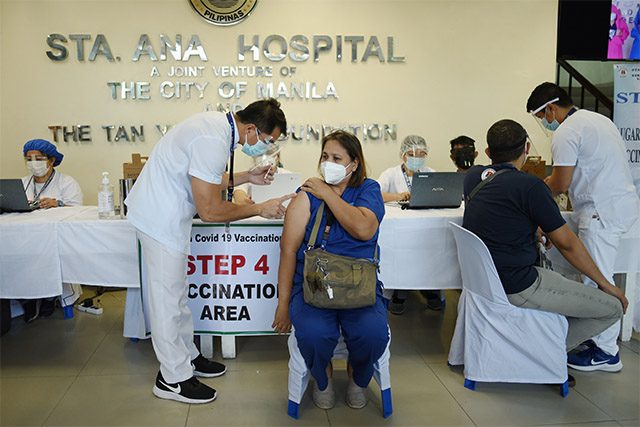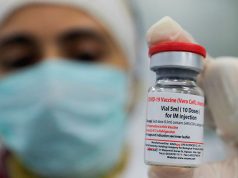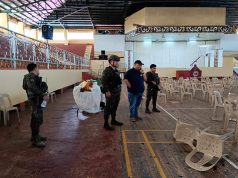
MANILA — The Philippines is on track with its COVID-19 inoculation drive, the head of the government’s vaccine strategy said on Sunday, addressing criticisms the rollout has been slow as worries grow about a surge in new cases.
The Department of Health reported 4,899 new coronavirus cases on Sunday, a day after recording the largest single-day increase in more than six months with 5,000 additional infections.
The latest tally brought the country’s total confirmed cases to 621,498, among the highest in Asia, with the reported death toll increasing by 63 to 12,829.
Carlito Galvez, who is in charge of the government’s vaccine procurement program, said almost 90% of the more than 1 million doses that arrived so far had been deployed nationwide.
“(The government) is on track in implementing its immunization program and optimistic that it would be able to achieve its target of inoculating about 70% of the country’s population within this year,” Galvez said in a statement.
The country’s vaccination drive started on March 1 with 600,000 Sinovac shots donated by China. The Philippines also received an initial 525,600 doses of AstraZeneca’s vaccine through the COVAX facility.
The total volume is just a small fraction of the 161 million doses the government plans to acquire to inoculate 50 million to 70 million Filipinos this year.
With limited supply, only frontline medical staff and healthcare workers are being given shots at the moment.
The rise in cases has prompted mayors in Metro Manila to reimpose localized lockdowns and nighttime curfews for two weeks beginning on Monday.
In Quezon City, the capital region’s most populous city, additional restrictions will be enforced including a liquor ban and the closure of gyms, spas and internet cafes. —Reporting by Enrico Dela Cruz; Editing by David Clarke








